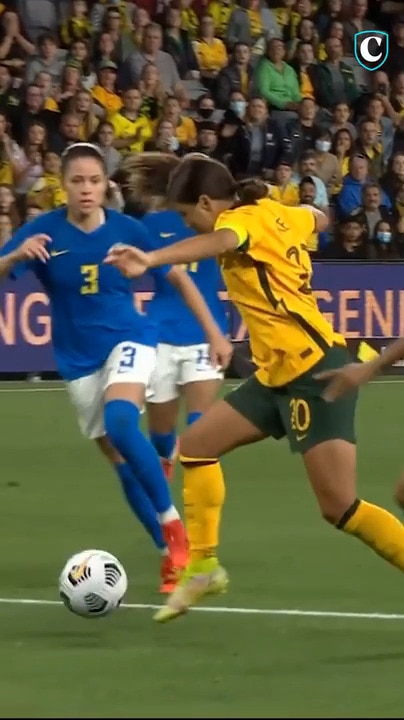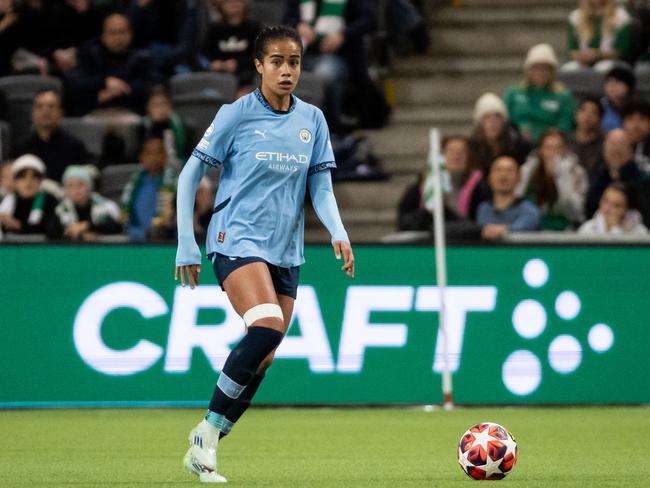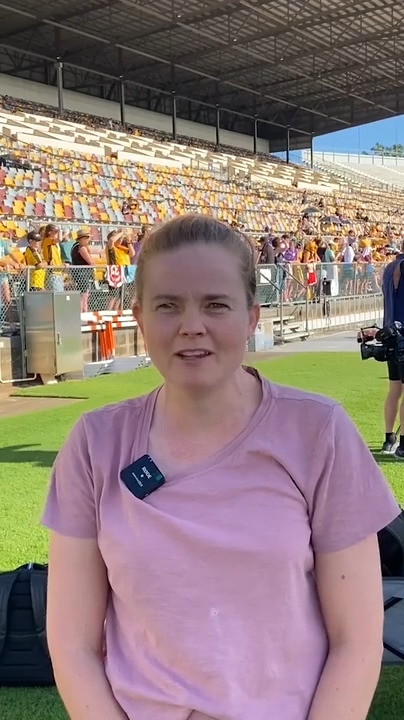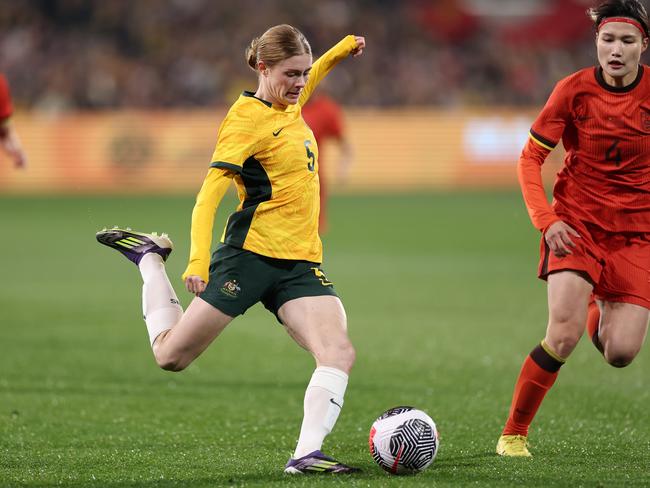The Matildas’ drastic culture shift now putting player welfare first
Five years ago taking a mental health break would have been the end of an athlete’s career with the Matildas, but a huge cultural shift has put players back in control of their welfare.

Women's Football
Don't miss out on the headlines from Women's Football. Followed categories will be added to My News.
Five years ago asking for a “mental health break” from the Matildas was highly likely to result in a premature end to the players’ career – a huge cultural shift and focus on player welfare means two of the team’s top players felt safe enough to simply say no.
Mary Fowler and Cortnee Vine have both withdrawn from this month’s national team camp citing mental and physical fatigue.
It is the second time this year Vine has made herself unavailable and it didn’t hinder her chances of making the Olympic squad.
Go back to 2019, before the Smith-Gander Report and cultural review, and there is little chance any Matildas player would have had the guts to turn down a national camp.

Heyman said when she was suffering panic attacks and poor sleep the psychologist suggested taking a break.
“But there was no way you would be able to have that conversation with the staff because that’s a weakness – and if you’re weak you can’t play,” Heyman told Code Sports last year.
Now a renewed focus on putting the players first means players feel safe to listen to their mind and bodies.
A Football Australia spokesman said the organisation was committed to prioritising the welfare of its players on and off the field.
“The rapid growth of women’s football and the extraordinary success of the FIFA Women’s World Cup 2023 have brought new challenges, and we are proud to continue creating an environment where players feel safe to prioritise their welfare,” the spokesman said.

“Through access to sports psychologists, tailored load management, and collaborative care with clubs, we have fostered a strong culture that ensures players can seek support without fear of stigma or risking their place in the team.
“Player welfare has been a central principle in recent years, and as the women’s game grows and professionalises, alongside the continued expansion of the men’s game, we remain committed to evolving our support structures.
“This ensures the long-term success and health of all our national teams.”
Caitlin Foord said the game had grown a lot in terms of popularity, opportunities and support.
“We have that support, we have the networks, if it is mental, physical support you need we have options for all of that, as it should be. Everyone has the option to be able to get the support they need,” Foord said.

On top of the extra off field pressure women’s footballers around the world are playing more minutes than ever before.
Foord said it was demanding, especially for Australian footballers based overseas with huge travel expectations.
“There’s a lot more games, there’s a lot more demand on us to play.
“This is where every female footballer wanted the game to go.”
Players through their union FIFPRO have asked for some thought to be given to the schedules – especially for international windows like this one that allows the Matildas to play four games in 10 days.
Foord said it was up to the governing bodies to make the calls.
“But for us to play games is all we’ve ever wanted,” she said.
The Matildas will play four games this international window, two against Brazil in Queensland and two against Chinese Taiepi in Victoria.
Their first game, against Brazil kicks off at 9pm (AEDT) at Suncorp Stadium.
More Coverage
Originally published as The Matildas’ drastic culture shift now putting player welfare first





